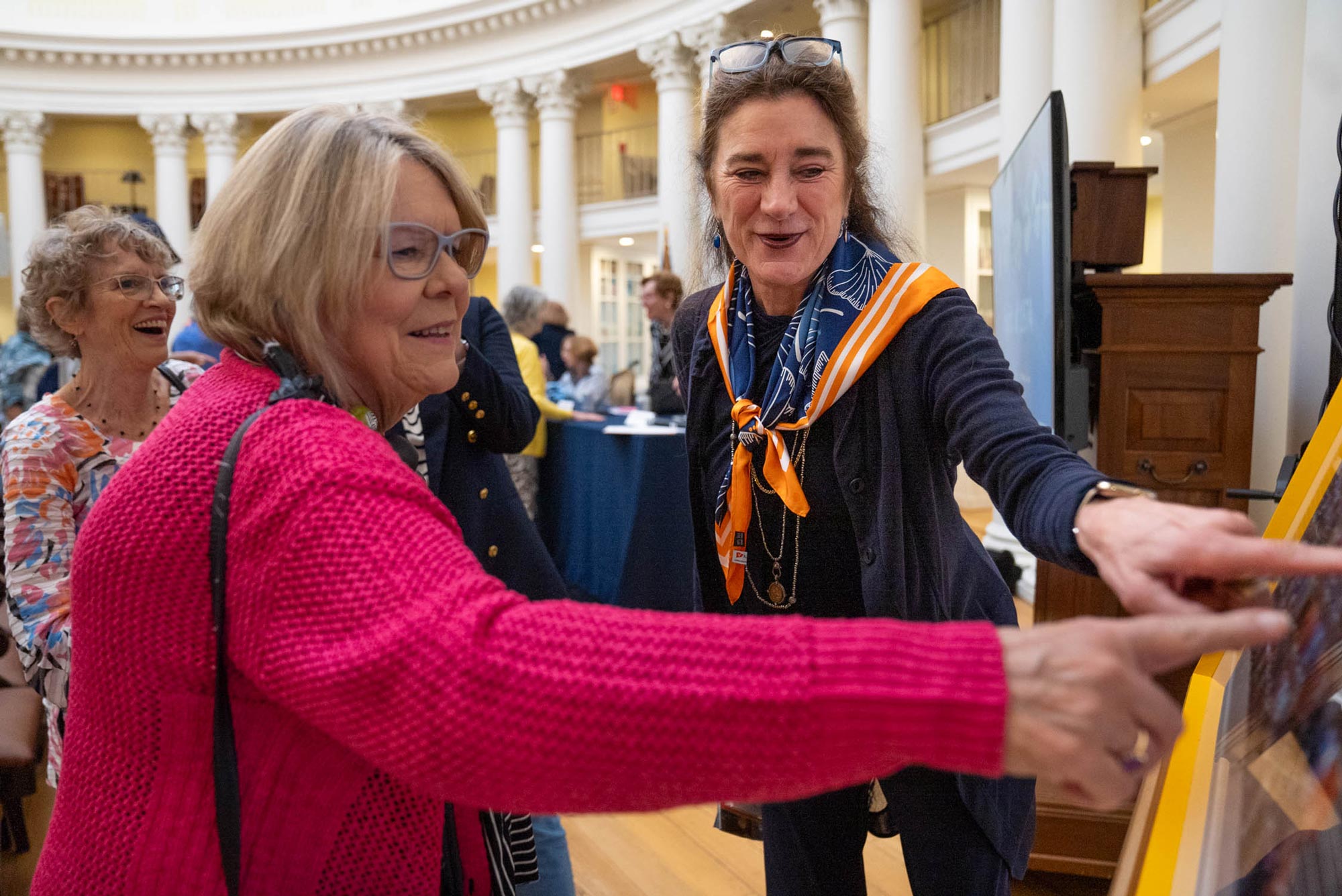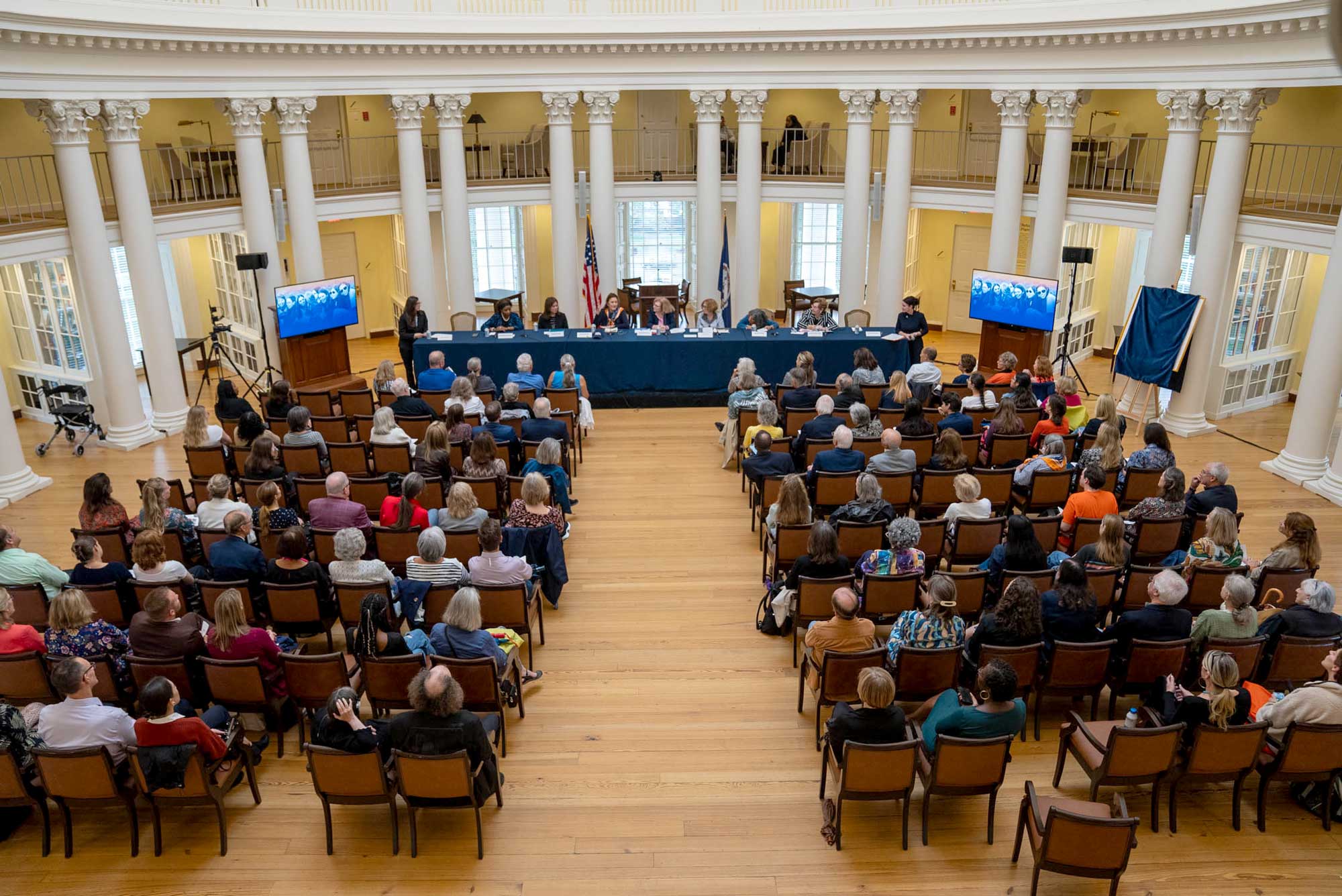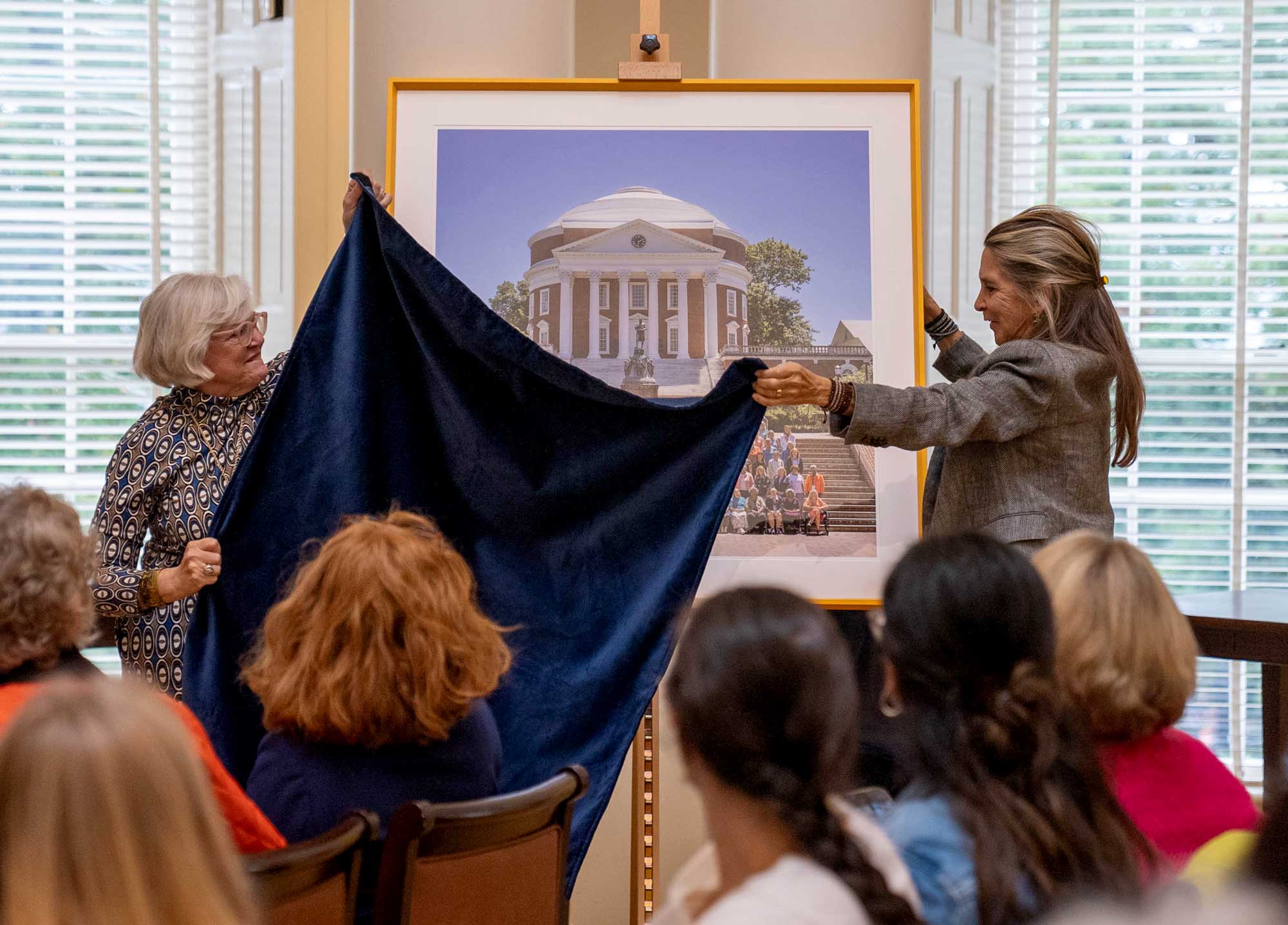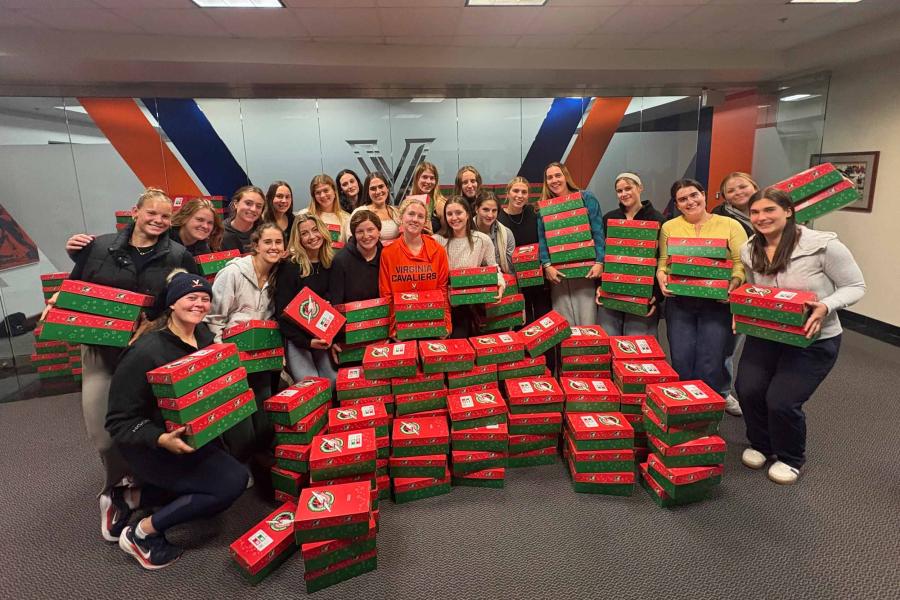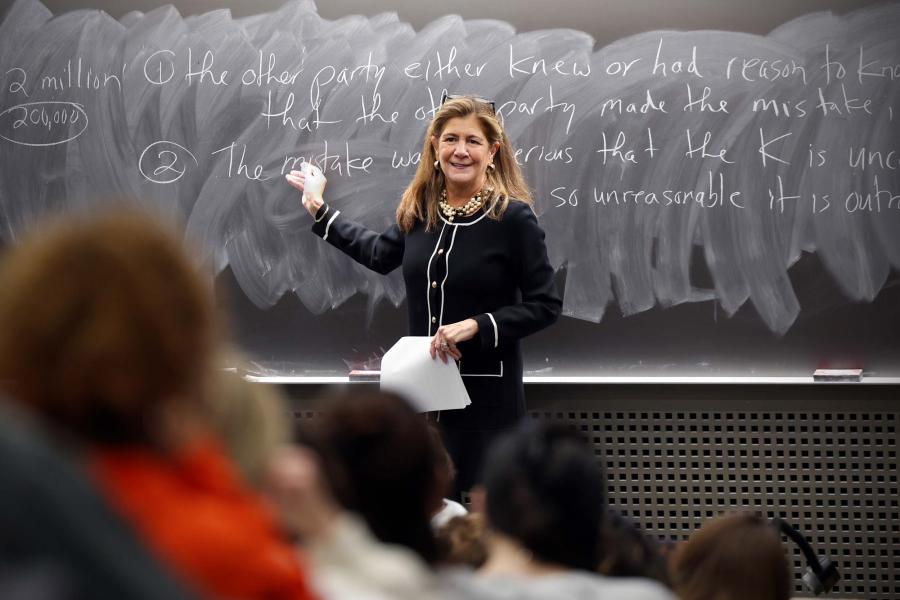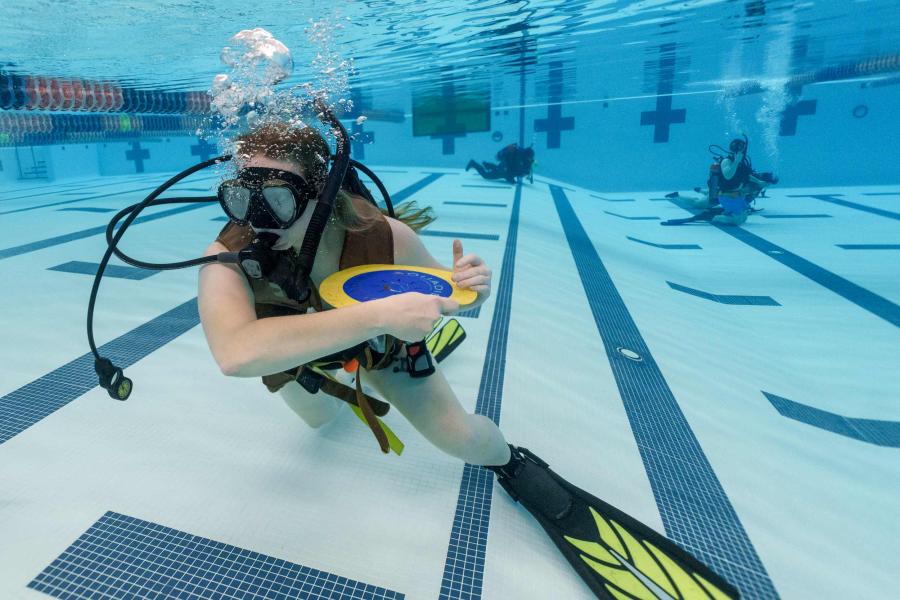“He turned to me, then said to the other guys, ‘If you want a female companion, you can always ask a date,’” Kyle Epps recalled.
Kyle Epps shared her story with a full crowd gathered in the Dome Room of the Rotunda Wednesday as part of the Spirit of 1974 symposium.
That fateful Friday night, she recalled marching out of the meeting. But she stuck around the University, even returning to Grounds to earn her master’s and law degrees before becoming a lawyer.
Attendees to the symposium came to hear from the women of UVA’s historic Class of 1974, the first fully coeducational class to graduate from the University. Kyle Epps and her classmates shared stories about their time at UVA – from celebrating their achievements to expressing gratitude for those who helped them succeed, including each other. Those in the Dome Room also witnessed the unveiling of a recent photo of the class, which is part of the President’s Portrait Series honoring UVA community members who have shaped the institution.
Although 350 women had been admitted as first-year students, and 100 more accepted as transfer students, not all parts of the University welcomed the new arrivals. The Jefferson Literary and Debating Society was one such group, until Barbara Golden Lynn came along.
The man who would become her husband also invited her to go to one of the society’s meetings. Given the free beer, it was a way for him to afford to take her on a date every week.
“I said to him, ‘I’d like to be in that group,’” Golden Lynn said. Though the group did not admit women, Golden Lynn interviewed to join twice a year for 2 1/2 years. Each time, her interviewers would ask her questions she said she could not repeat. And each time, she had a response prepared.
“Is that the best you got? The questions were much worse last semester,” Golden Lynn remembered saying.
Golden Lynn became the first woman to join the organization, after her future husband held a vote when more conservative members of the group were celebrating Mardi Gras in New Orleans. Golden Lynn would later become the first woman to be named chief judge in the Northern District of Texas.
For a group of women granted admission specifically because they were “joiners and doers,” being denied access to activities was a blow. But the women created their own opportunities, forming swimming, tennis and field hockey clubs.
Other student organizations were not only open to women, but they also explicitly invited them to join, like the Cavalier Daily and UVA’s radio station, WTJU. It was through these groups, each other and supportive faculty and staff the women found their footing.
Annette Gibbs, then an associate dean of student affairs, approached members of the Class of 1974 about the possibility of a national sorority starting a chapter at UVA.
“I said, ‘You’re looking at our sorority,’” Dickie McMullan, now a physician, said. “Any troubles we had, we went to our peers.”
The women asserted their right to attend the University and determined to excel there. They took up space – even putting flowerpots in the urinals that had not been removed from what were now women’s bathrooms.
Now, the undergraduate population at UVA is more than half women, and women lead in all corners of the University, from athletics to academics, students to administrators.
“It’s hard to think of yourself as a physician or an engineer or an architect when you don’t see women doing those things. The young women here have role models that we didn’t,” Roseann Romito, a physician, said.
